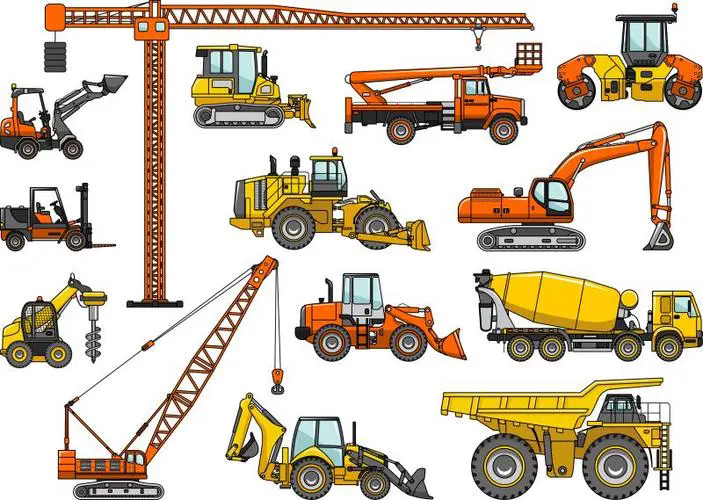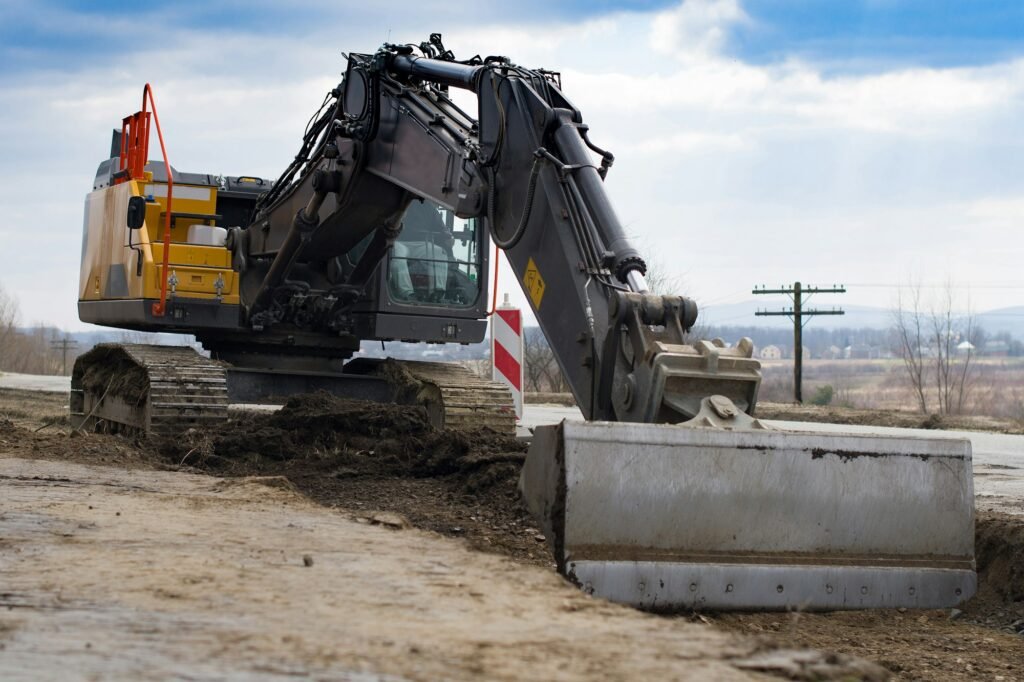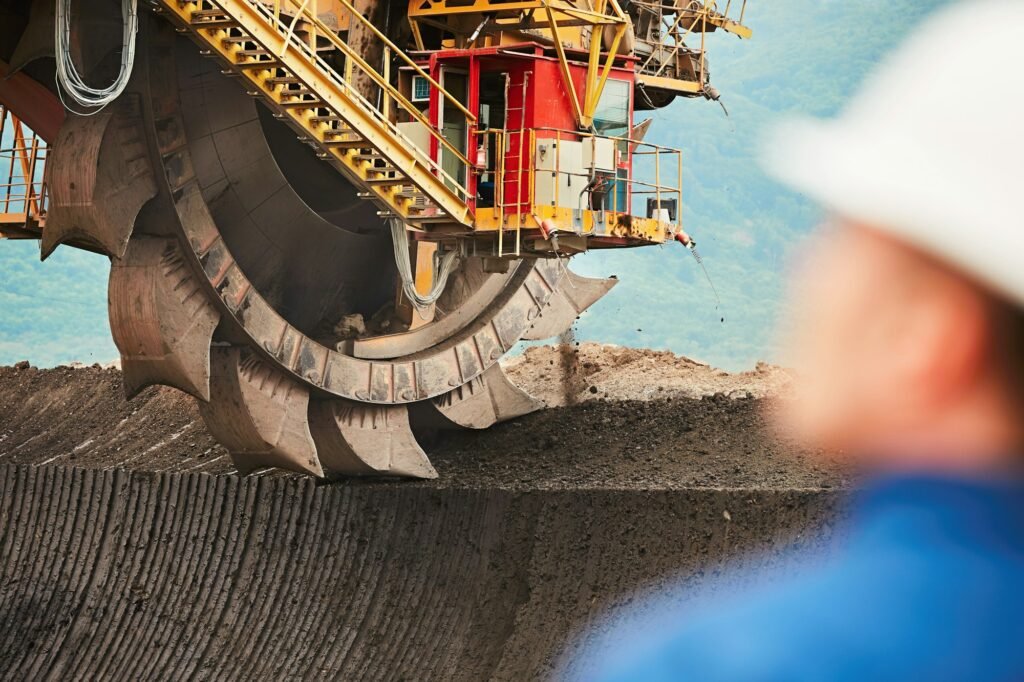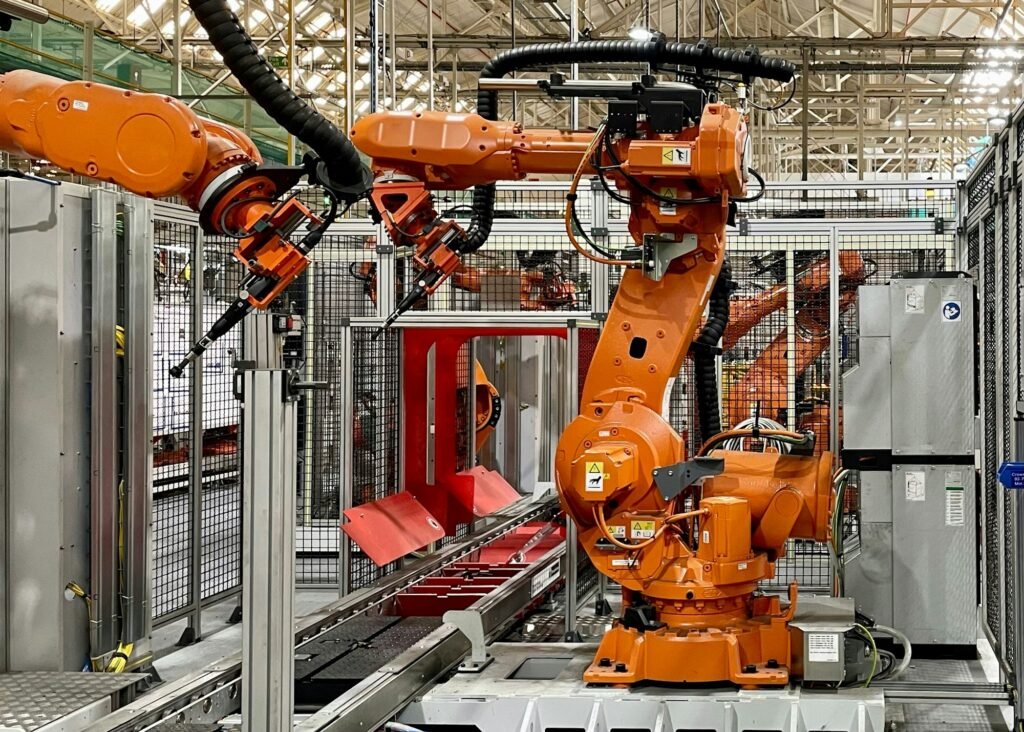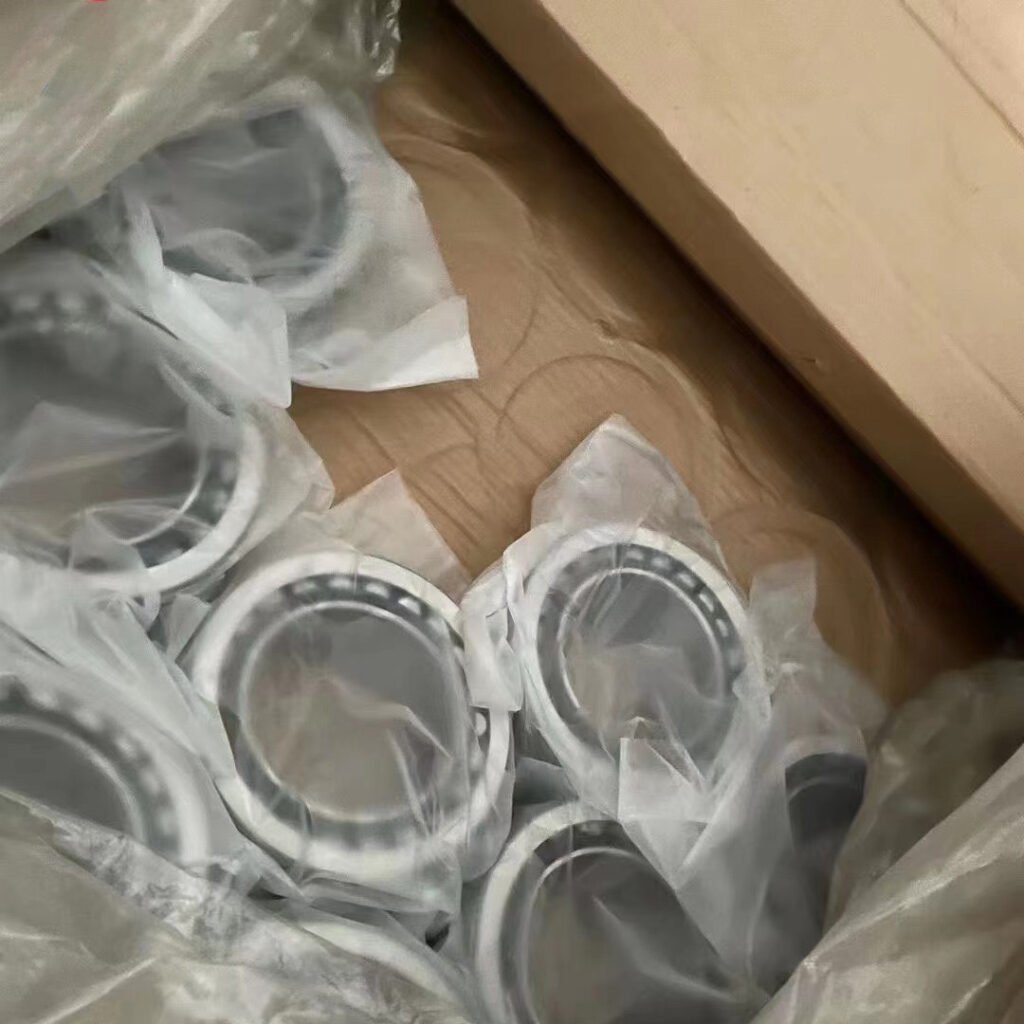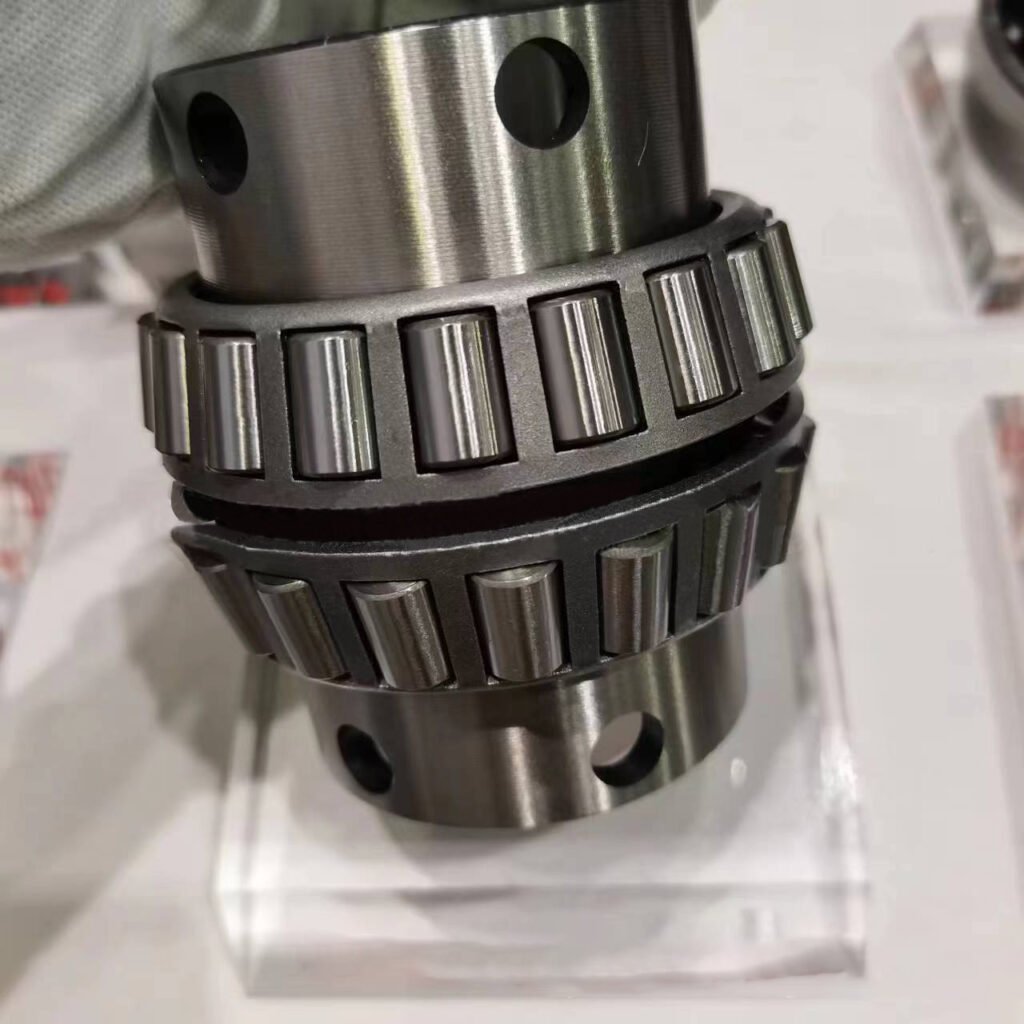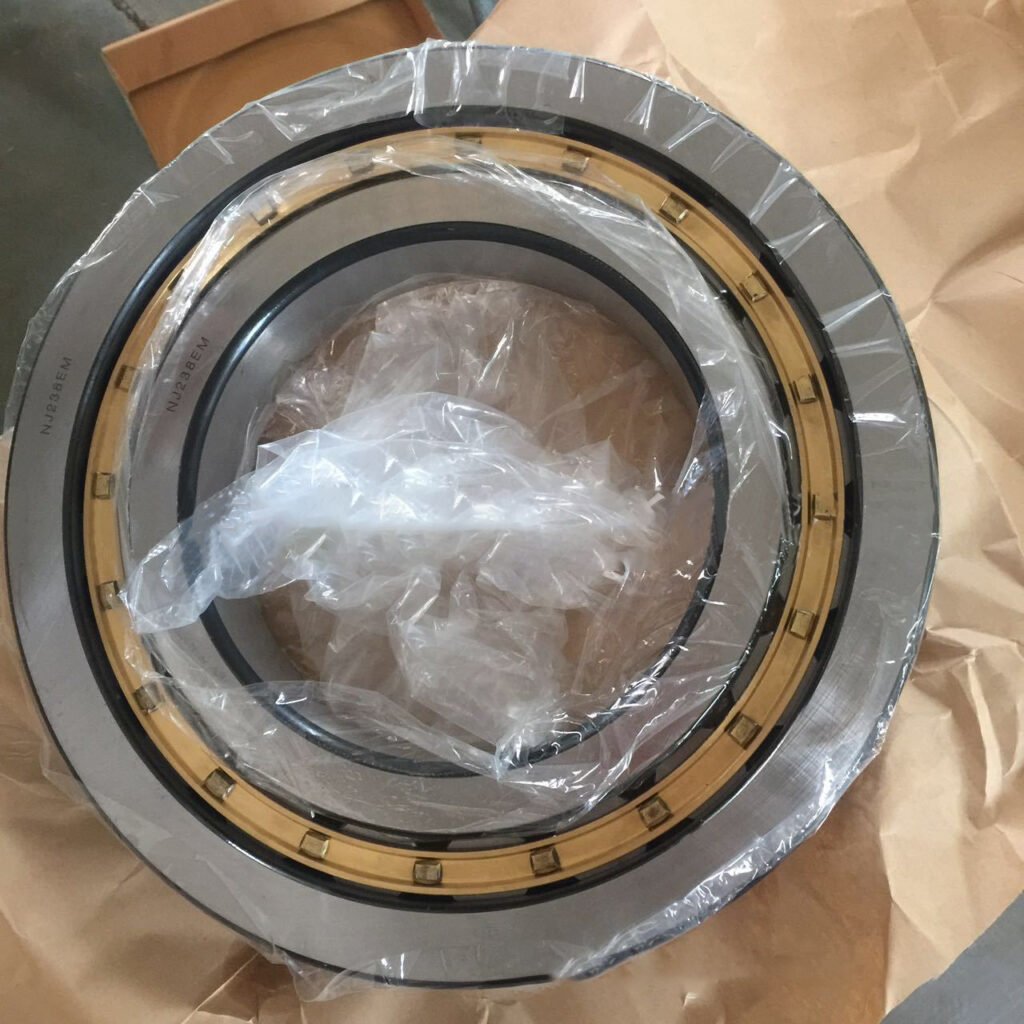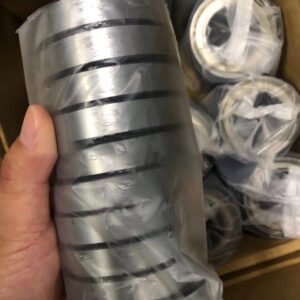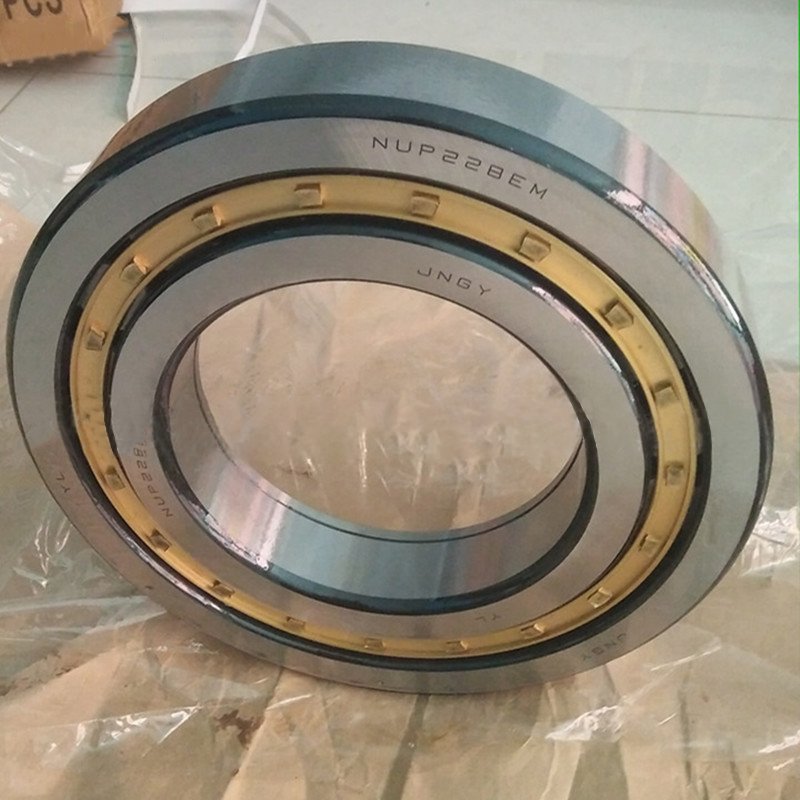Precision bearings are indispensable components in industries requiring high accuracy, reliability, and efficiency. These industries often operate in demanding environments where even the smallest deviations can lead to significant consequences. Selecting the right material for precision bearings is a crucial decision that ensures optimal performance, longevity, and cost-effectiveness. This article explores the materials best suited for precision bearings, tailored to meet the specific needs of different industries. By understanding these requirements, you can make informed choices that align with operational and environmental demands.

Industries That Need Precision Bearings
1. Aerospace Industry
- Operational Environments:
- Extreme conditions, including high-altitude, low-pressure, and wide temperature ranges (-50°C to 200°C or more).
- Exposure to high rotational speeds and dynamic loads during take-off, cruising, and landing.
- Key Characteristics:
- High Precision Requirements: Even the smallest imperfections can lead to catastrophic failure.
- Weight Sensitivity: Every gram matters; reducing weight enhances fuel efficiency and payload capacity.
- Stringent Safety Standards: Bearings must undergo rigorous testing to comply with aerospace regulations.
- Long Lifespan: Bearings in aerospace applications often require maintenance-free performance over long durations.
- Typical Applications:
- Jet engines, landing gear, auxiliary power units, and control systems.
- Recommended Materials:
- Ceramic Bearings: Lightweight and heat-resistant.
- Titanium Bearings: High strength-to-weight ratio and corrosion resistance.
- High-Grade Stainless Steel Bearings: For applications exposed to moisture or corrosive elements.
2. Medical Equipment Industry
- Operational Environments:
- Clean and sterile environments with exposure to frequent cleaning and disinfection processes.
- Sensitive operations in medical imaging equipment, robotic surgery systems, and diagnostic tools.
- Key Characteristics:
- Hygiene and Sterility: Materials must resist corrosion and contamination during sterilization (e.g., autoclaving, chemical cleaning).
- Low Noise and Vibration: Smooth and silent operation is critical, especially in imaging and diagnostic equipment.
- Precision and Reliability: Bearings must deliver high accuracy for delicate movements and prolonged performance.
- Non-Magnetic Properties: Some medical applications, such as MRI machines, require bearings that do not interfere with magnetic fields.
- Typical Applications:
- MRI and CT scanners, robotic surgical arms, infusion pumps, and prosthetic devices.
- Recommended Materials:
- Stainless Steel Bearings (AISI 440C): Corrosion-resistant and durable.
- Ceramic Bearings: Non-magnetic and excellent for MRI machines.
- Plastic Bearings (PEEK): Lightweight and suitable for cleanroom conditions.
3. Semiconductor Manufacturing Industry
- Operational Environments:
- Ultra-clean environments where even microscopic contaminants can compromise product quality.
- High-speed, precise motions in lithography machines, wafer handlers, and robotic arms.
- Key Characteristics:
- Particle-Free Operation: Bearings must produce minimal friction and avoid shedding debris or particles.
- Chemical Resistance: Exposure to aggressive cleaning agents and process chemicals.
- Extreme Precision: Bearings must maintain nanometer-level accuracy in positioning and motion.
- High Durability: Must withstand repetitive high-speed motions without degradation.
- Typical Applications:
- Lithography machines, wafer etching and cleaning tools, robotic arms for chip assembly.
- Recommended Materials:
- Full Ceramic Bearings: For low friction and contamination-free operation.
- Hybrid Ceramic Bearings: Combine ceramic balls with steel races for high performance.
- Plastic Bearings (PTFE): Chemically inert and wear-resistant.
4. Automotive Industry
- Operational Environments:
- Bearings are exposed to a range of conditions, from high temperatures in engine compartments to moisture and dirt in suspension systems.
- High-speed rotations in engines, transmissions, and wheel hubs.
- Key Characteristics:
- Wear and Load Resistance: Bearings must handle continuous high loads and resist wear over time.
- Heat Management: Essential for components such as turbochargers and transmissions operating under extreme heat.
- Corrosion Resistance: Bearings exposed to moisture, road salts, and dirt need to resist rust.
- Cost Efficiency: Automotive bearings must balance performance with cost for large-scale production.
- Typical Applications:
- Transmissions, wheel hubs, engines, turbochargers, and suspension systems.
- Recommended Materials:
- Chrome Steel Bearings: High strength and durability for transmissions.
- Hybrid Ceramic Bearings: Lightweight and efficient for high-speed applications.
- Stainless Steel Bearings: For components exposed to moisture and dirt.
5. Aerospace Electronics and Robotics
- Operational Environments:
- Bearings in robotics often operate in controlled or variable environments, while aerospace electronics face high-vibration and temperature conditions.
- Applications demand high-speed and repetitive movements.
- Key Characteristics:
- High Precision and Repeatability: Bearings must ensure accurate motion for robotic arms or gyroscopes.
- Lightweight Design: Reducing mass improves efficiency in aerospace systems and robotics.
- Low Noise and Vibration: Smooth operations are critical for delicate robotic systems and electronic stability in aerospace.
- Durability in Extreme Conditions: Aerospace electronics often demand bearings that can withstand heat, vibration, and environmental variations.
- Typical Applications:
- Robotic arms, gyroscopes, drones, and precision instruments.
- Recommended Materials:
- Ceramic Bearings: Lightweight and electrically insulating.
- Titanium Bearings: High strength and resistance to dynamic stresses.
- Plastic Bearings: Noise-reducing for delicate systems.
Summary of Material Selection Based on Industry Needs
| Industry | Key Requirements | Recommended Materials |
| Aerospace | Lightweight, heat-resistant, fatigue-resistant | Ceramic, Titanium, Stainless Steel |
| Medical | Corrosion-resistant, non-magnetic, sterilizable | Stainless Steel, Ceramic, Plastic |
| Semiconductor | Low friction, particle-free, chemical-resistant | Full Ceramic, Hybrid Ceramic, PTFE |
| Automotive | Wear-resistant, load-bearing, heat-dissipating | Chrome Steel, Hybrid Ceramic, Stainless Steel |
| Robotics | Lightweight, low-vibration, long life cycle | Ceramic, Titanium, Plastic |
Conclusion
By matching the bearing material to the specific operational and environmental demands of an industry, businesses can optimize performance, reduce maintenance, and extend equipment life. The decision requires careful analysis of application-specific needs, and this guide serves as a foundational resource for making those informed choices. With the advancement of science and technology, precision bearings are applied to more industries. If you do not find the industry that suits your situation in this article, please contact our professional bearing application engineer Maxwell, who will provide you with more professional knowledge.

